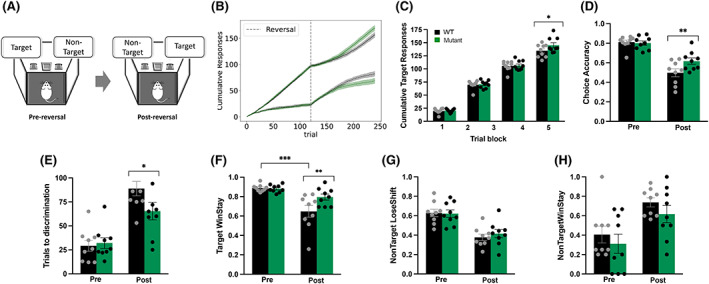FIGURE 2.

Mutant allele of Gpm6b decreased sensitivity to reversal‐induced performance impairments in the probability reversal learning task (A). After the reversal occurred, mutant mice selected the target lever more frequently, relative to WT littermates (B). Cumulative target responses post reversal were higher in mutant mice, WT mice showing significantly reduced responses during the last block of 60 trials (C). During post‐reversal, reduction in accuracy was more pronounced in WT mice, relative to mutant mice (D). Higher number of trials were required by the WT mice to shift their preference to the new target lever after the reversal had occurred (E). After the reversal, mutant mice had a greater tendency to repeat rewarded target responses compared to WT mice (F). While the reversal had a significant impact on target lose‐shift, non‐target lose‐shift, and non‐target win‐stay responding, there was no main effect of genotype for any of these measures (G,H). ***p > 0.001, **p > 0.01, *p > 0.05
